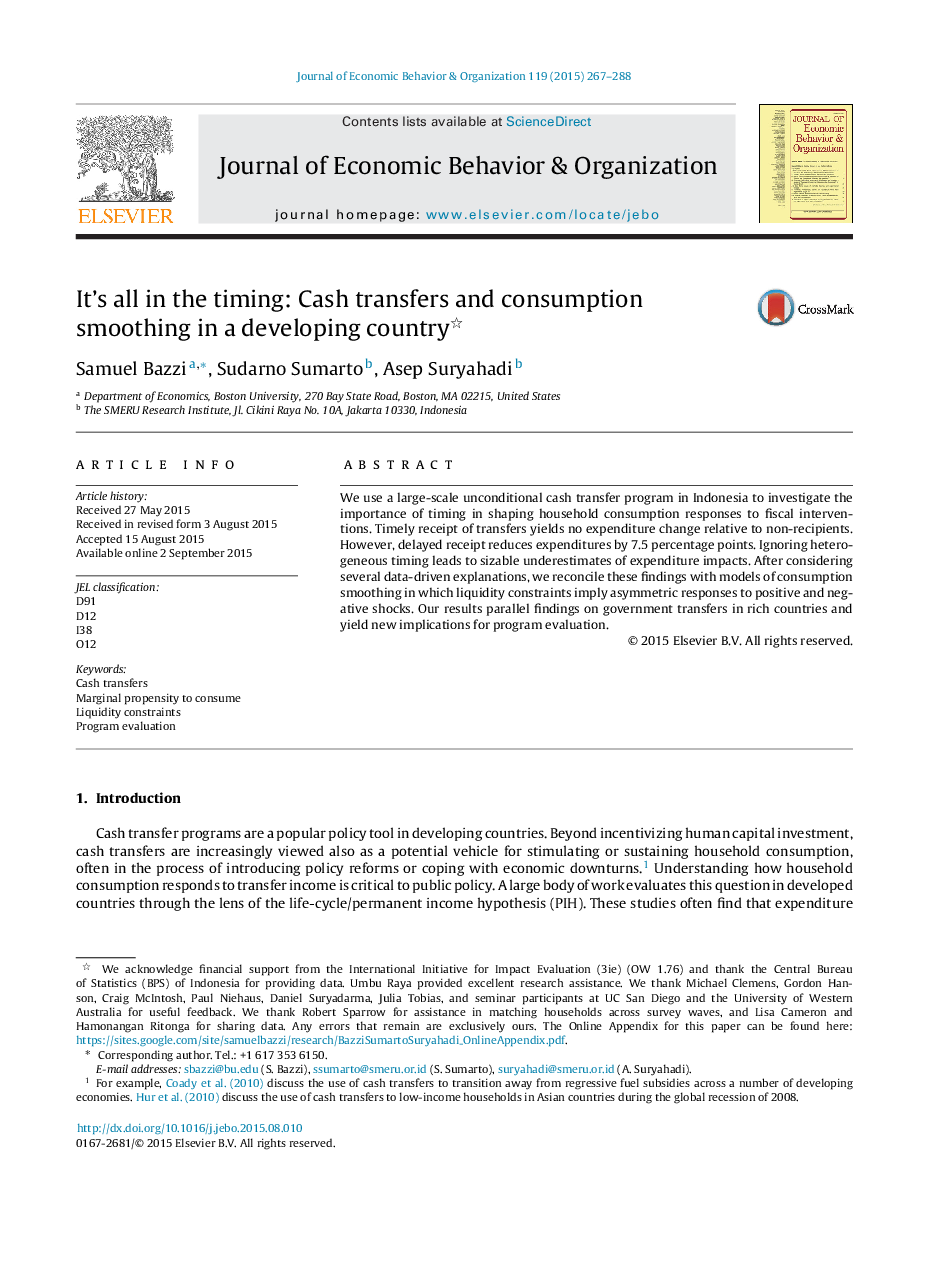| Article ID | Journal | Published Year | Pages | File Type |
|---|---|---|---|---|
| 7242914 | Journal of Economic Behavior & Organization | 2015 | 22 Pages |
Abstract
We use a large-scale unconditional cash transfer program in Indonesia to investigate the importance of timing in shaping household consumption responses to fiscal interventions. Timely receipt of transfers yields no expenditure change relative to non-recipients. However, delayed receipt reduces expenditures by 7.5 percentage points. Ignoring heterogeneous timing leads to sizable underestimates of expenditure impacts. After considering several data-driven explanations, we reconcile these findings with models of consumption smoothing in which liquidity constraints imply asymmetric responses to positive and negative shocks. Our results parallel findings on government transfers in rich countries and yield new implications for program evaluation.
Keywords
Related Topics
Social Sciences and Humanities
Economics, Econometrics and Finance
Economics and Econometrics
Authors
Samuel Bazzi, Sudarno Sumarto, Asep Suryahadi,
